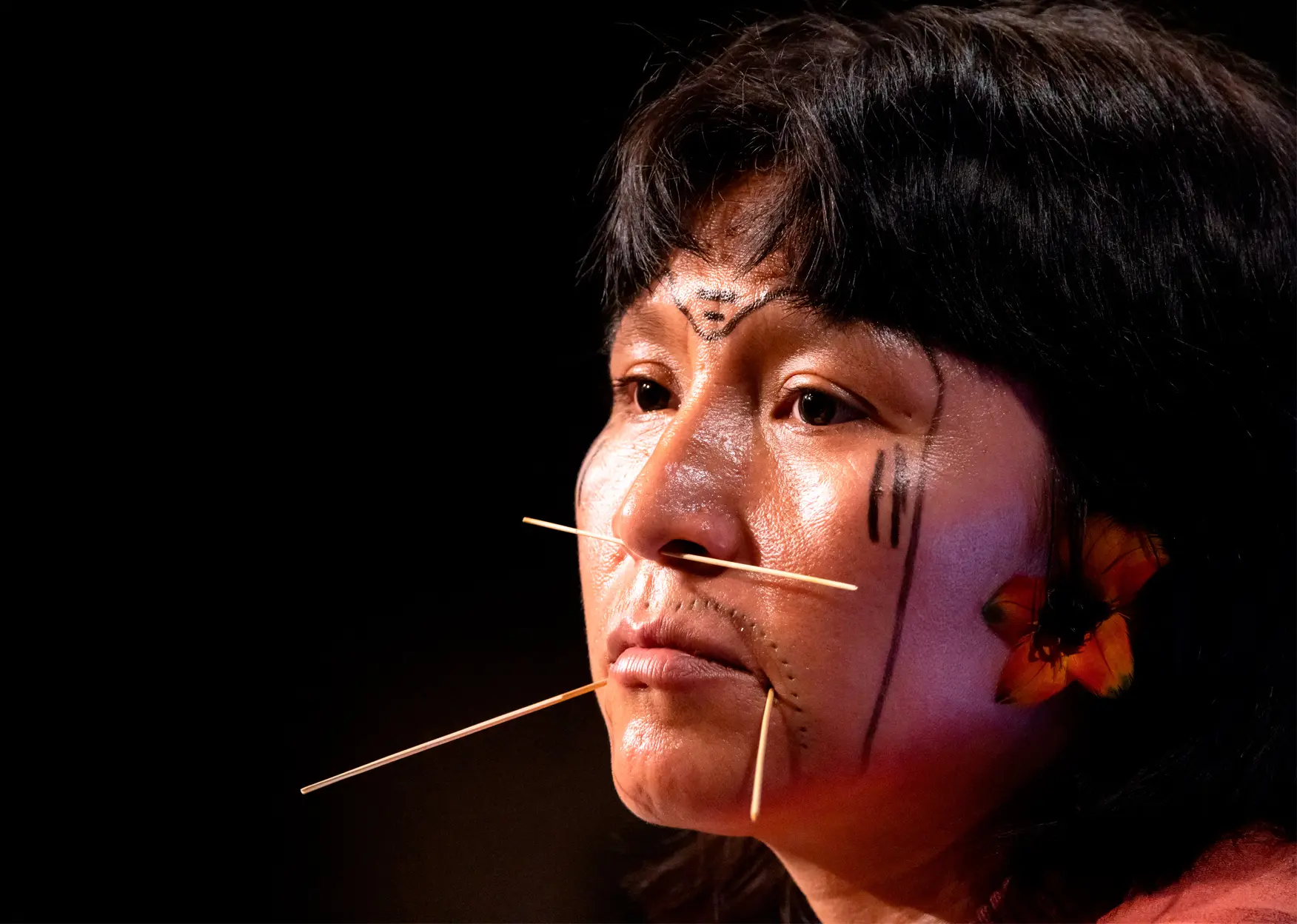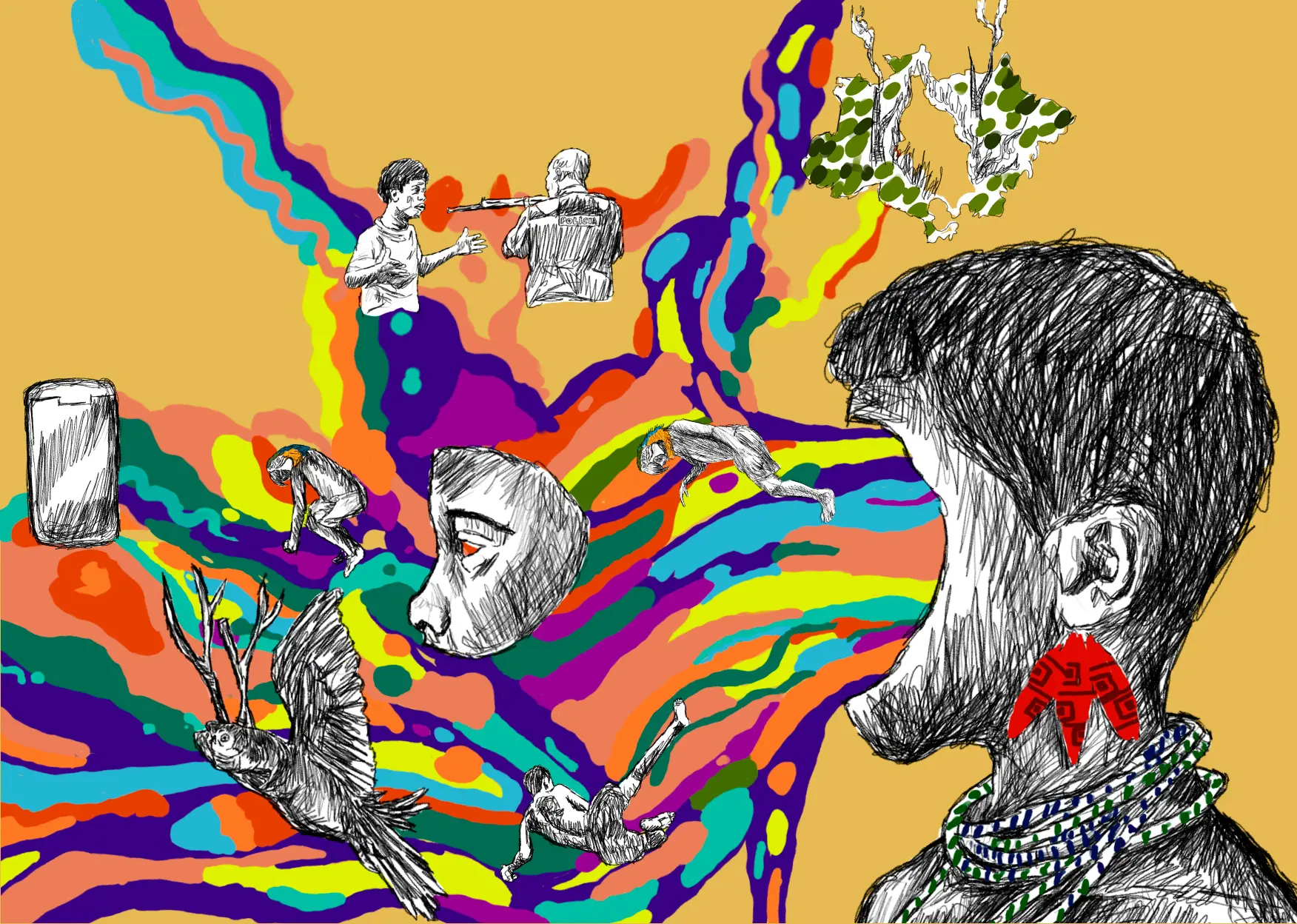On Tuesday, July 29, the Amazonas state government reached an agreement to pay 54,000 dollars in damages to an Indigenous woman of the Kokama people who accused policemen of raping her in the Santo Antônio do Içá jail. As reported exclusively by SUMAÚMA on July 18, the woman—whom we are calling K to protect her identity—said that for nine months and 17 days, policemen raped her while she was lying next to her newborn baby.
Through April of this year, the government was offering K only around 6,200 dollars in moral damages—later increased to 9,000 dollars—while her attorney had asked for roughly 90,000 dollars. Two weeks after Sumaúma published its report, however, the government changed its offer to roughly 54,000 dollars, plus a house to be provided by the state.
Likewise subsequent to SUMAÚMA’s publication of the story, four military police officers and a civil guard were arrested. K was originally sentenced to 16 years and seven months of incarceration as co-perpetrator in the murder of a teenager, but a Manaus criminal court judge ruled that she now serve time in semi-open confinement, a regime defined in the Indigenous Statute (Law No. 6001/1973), which allows sentences to be served at the facility of the federal Indigenous agency, Funai, located closest to the Indigenous person’s home.
K’s family, who decided to leave Santo Antônio do Içá because of threats received after K came forward with her accusations, will now live in a house donated by the state government. Once the agreement was signed by the Indigenous woman (with the virtual presence of her attorney, Dacimar de Souza Carneiro) and by representatives of the Amazonas state government, Public Prosecutor’s Office, and Public Defender’s Office, the suit for damages was dismissed “on the merits of the case.” The settlement hearing was presided over by Judge Etelvina Lobo Braga, of the 3rd Court of the Public Administration in Manaus.
In addition to the 54,000-dollar settlement, which will be paid under a special court order—payment will enter a queue and is not expected to be made in full for two to three years, according to K’s attorney—the state government has pledged to pay the family the equivalent of $266 a month for one year, so they can settle in a new town, not to be named for security reasons.
During the hearing, attorney Carneiro told the judge that both K and her family “are unable to remain in Santo Antônio do Içá, because they fear for their physical integrity.” Speaking on behalf of the government, prosecutors Giordano Bruno Costa da Cruz and Leonardo de Borborema Blasch said “the state pledges to continue providing psychological treatment for the plaintiff [Indigenous woman], preferably with the same provider who is seeing her now.”
Carneiro told SUMAÚMA the outcome of the case should prompt reconsiderations of prison conditions in the interior of Amazonas. “While the lawsuit that sought to hold the state accountable for its failure to ensure the safety and dignity of prisoners has been settled, what remains is the urgent need to meet the pressing, crucial challenge of establishing protection mechanisms, thoroughly restructuring prison facilities and police stations, and guaranteeing human rights and decent working conditions for both staff and detainees—especially women,” the lawyer said.
On Wednesday, July 30, the human rights groups Entre Elas (Among Women) and the Amazonas State Front for Decarceration released a public statement signed by 126 nongovernmental organizations in Amazonas and several other states. According to the statement, Amazonas has six penitentiaries in the state capital, seven in the interior, 53 police precincts, and a military police battalion, where more than two thousand people are now incarcerated. Only one of these places, however, “is legally dedicated to cis women who are serving sentences.” In July, 40 women “were being detained in prisons in the interior.”
“We do not believe it is possible for a woman who was raped every day for nine months by policemen inside a prison facility to have her dignity restored and receive physical and mental health care inside another prison space and, what’s worse, one run by military and prison policemen,” the public statements says.
“If we read the words of the Indigenous Kokama woman, spoken so courageously to a journalist, these successive rapes are part of a larger set of acts of violence and violations that have led to physical, psychic, and spiritual illness, whose marks will likely never be erased during her lifetime. She and her baby were subjected to an attempt to erase their existence, to reduce them to a situation of absolute indignity, which included denying them access to any means or networks of defense and protection.”
Report and text: Rubens Valente
Editing: Fernanda da Escóssia
Art Editor: Cacao Sousa
Photo Editor: Lela Beltrão
Fact-checker: Plínio Lopes
Proofreader (Portuguese): Valquíria Della Pozza
Castilian translation: Meritxell Almarza
English translation: Diane Whitty
Copyediting and finishing: Natália Chagas
Editorial workflow: Viviane Zandonadi
Editor-in-chief: Talita Bedinelli
Editorial director: Eliane Brum




